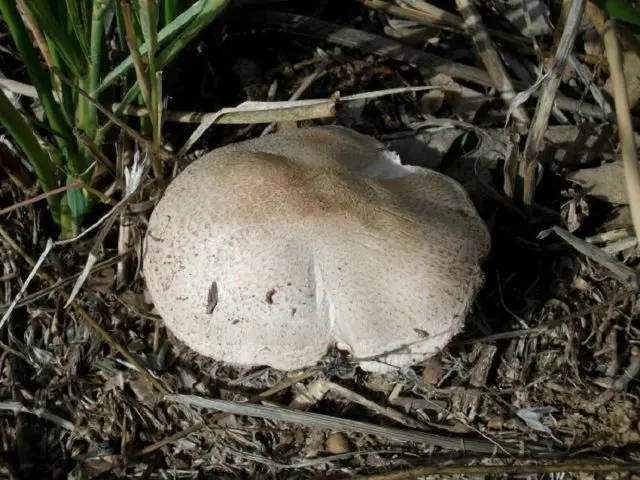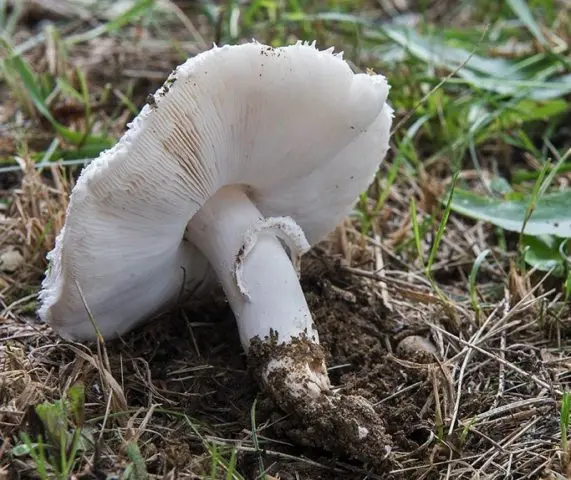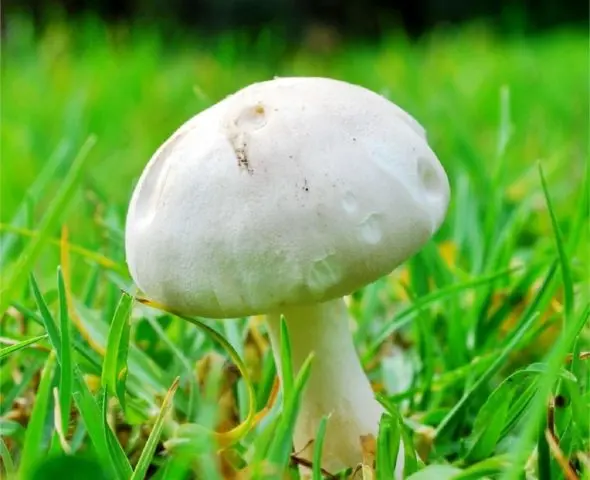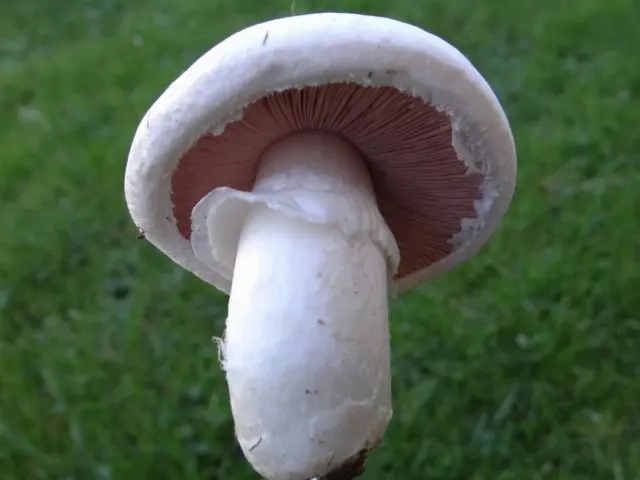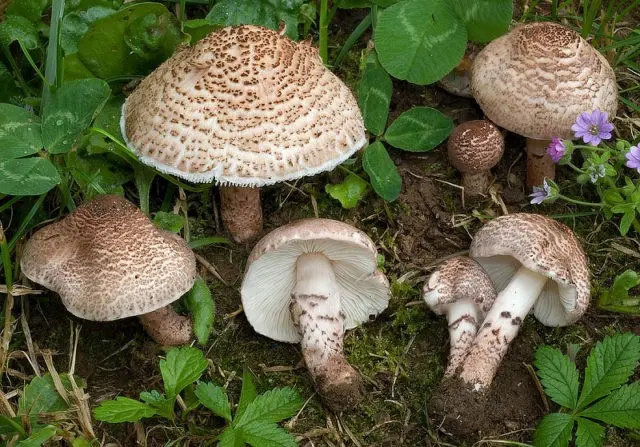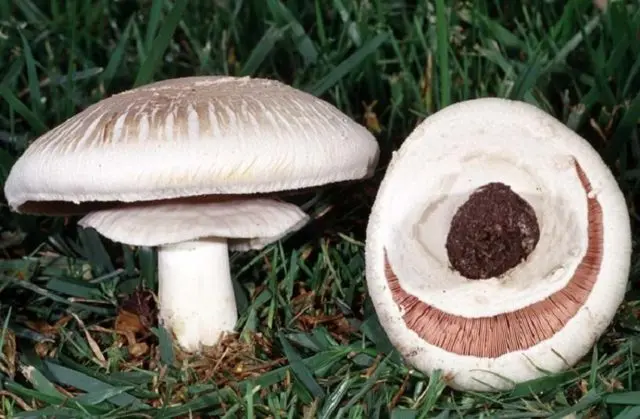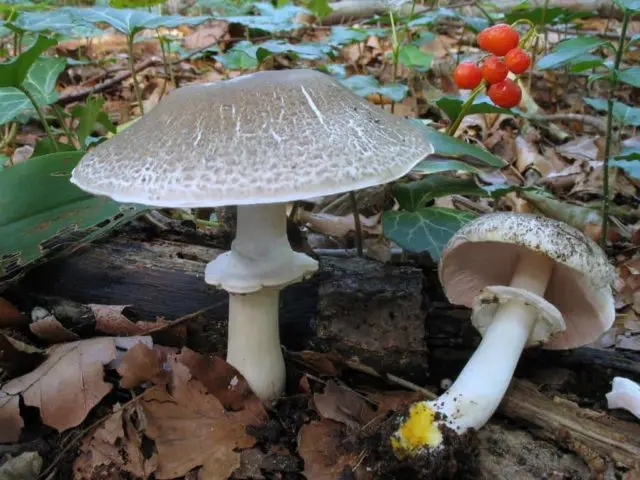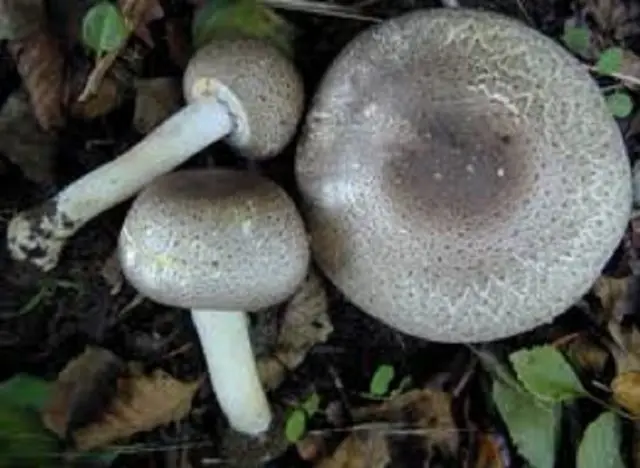Contents
Among the champignon family there are different representatives. Long-root white champignon is very familiar to mushroom pickers who prefer this look. The popularity is well-deserved, thanks to the taste characteristics, which are considered the main parameters of any mushroom.
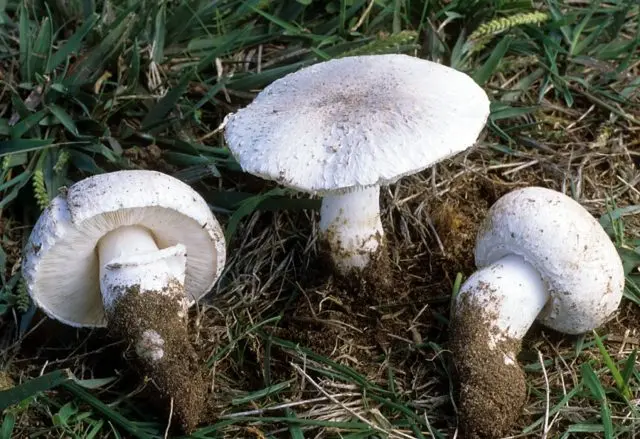
Knowledge of the external characteristics of the fruiting body is the key to maintaining health
Where does white champignon grow
White champignon is widespread in North America, Australia, Eurasian countries. Fans of “silent hunting” from Our Country can meet a juicy mushroom in the Rostov region. In other regions, its presence was not noted. Most often grows in fields, roadsides, parks or gardens. The species can grow as single specimens or in small groups.
Fruiting lasts from early June to early October.
What does white champignon look like?
You can easily recognize the species among other representatives of the mushroom kingdom by its description. The main parts of the fruiting body have their own characteristic features:
- Hat. In young specimens, it is spherical in shape. Adults are distinguished by a hemispherical or convex-outstretched hat. Some have a small bump in the middle. The surface is scaly or fleecy, whitish in color, with a darker middle. Diameter from 4 cm to 13 cm.

- Pulp. Under the skin it has a grayish tint, the main part is white. The consistency is dense, the smell of mushroom and quite strong. The taste is slightly sweet, the smell resembles the aroma of walnut kernels.
- Records. The long-rooted species is attributed by scientists to agaric mushrooms. Its plates are frequent, thin, cream-colored, darken when damaged. If dry, they turn brown.
- Leg. Tall and strong. Length from 4 cm to 12 cm, thickness up to 2,5 cm. It resembles a mace in shape. The base of the stem has long underground formations that grow into the ground. Decorated with a simple white ring. Moreover, it can be located in any part – at the bottom, in the middle or at the top of the leg. Some white mushrooms do not have it at all.

The stem may have a ring or its remains at any distance from the cap
The spores of the species have an oval or ellipse outline, white or cream color.
A detailed description allows mushroom pickers to immediately distinguish the long-rooted white champignon from other species.
Is it possible to eat white champignon long root
The mushroom is considered edible even when fresh. There are no prohibitions and restrictions for eating food. Therefore, cooking can begin after cleaning and quick boiling of the fruiting bodies.
False doubles
It should be noted that an inexperienced mushroom picker can confuse a long-rooted mushroom with both other edible mushroom species and poisonous counterparts.
Among the edible species that have similar characteristics, it should be noted:
- White champignon blushing. The Latin name is Leucogaricus leucothites. It has a wider distribution area than the long-rooted. Fruiting ends in August, so when picking mushrooms in the fall, it will not work to confuse the species.

White champignon ruddy is found only in the summer months
- Champignon two-spored. In Latin, it sounds like Agaricus bísporus. There are three varieties of mushroom – white, cream and brown. The first two are very similar to the long-rooted white champignon.

Bisporous – an edible species that can be collected along with the long-rooted
These species are also edible. If they fall into the basket, they will not bring harm. However, there are venomous scaly counterparts to watch out for:
- Lepiota scaly (Lepiota brunneoincarnata). The difference is in the size of the hat. In lepiota, it is no more than 6 cm in diameter. Also, the leg of the poisonous mushroom has a different color to the place where the ring is attached and below it. Below it is darker.

Lepiotas are best distinguished by adult specimens, in which the maximum diameter of the cap is much smaller.
- Champignon yellowskin (Agaricus xanthodermus). The hat is large, like the long-rooted species. The color of the skin is yellow, when pressed, the hat also becomes yellowish. The leg is hollow. The mushroom is very poisonous.

This species has a hollow cap, which distinguishes it from edible champignon
- champignon motley (Agaricus moelleri). The color of the hat is gray, you need to carefully examine it when picking mushrooms. Diameter up to 14 cm. Brown spores.

Pied is distinguished by a leg that does not have the shape of a mace
- Champignon flat cap (Agaricus placomyces). It has an inky odor and turns yellow sharply in air. The cap diameter is not more than 8 cm. The spore powder is brown.

Flat-cap is sharply distinguished by a smell that resembles phenol
Rules for collection and use
At the moment of “quiet hunting” you need to carefully examine each copy before collecting it in the basket. It is not recommended to take fruiting bodies on the side of roads, near railway lines, near industrial areas. Any mushroom that is in doubt should be put aside. More on how to inspect fruiting bodies at harvest:
The species is suitable for fresh consumption, drying, frying, pickling and salting. It is very convenient for cooks that it can be consumed even without boiling.
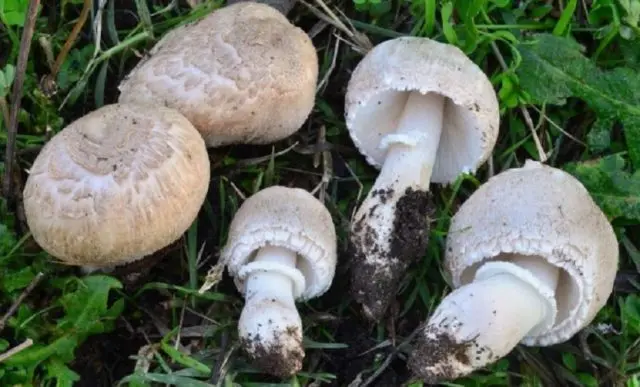
Silent hunting only makes sense away from roads or other sources of toxins.
Conclusion
Long-root white champignon is a very tasty and juicy mushroom. Collecting edible mushrooms will significantly diversify the diet and increase the vitamin composition of dishes.










